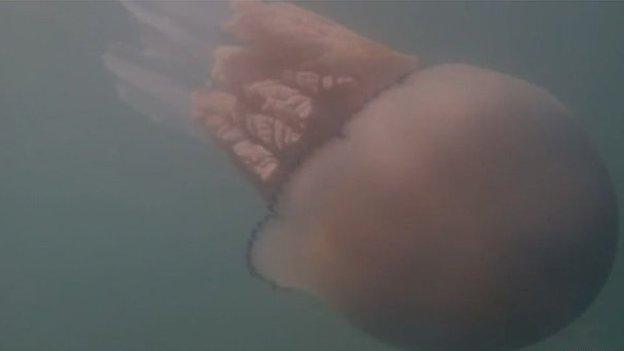Chinese police uncover huge fake jellyfish 'scam'
- Published
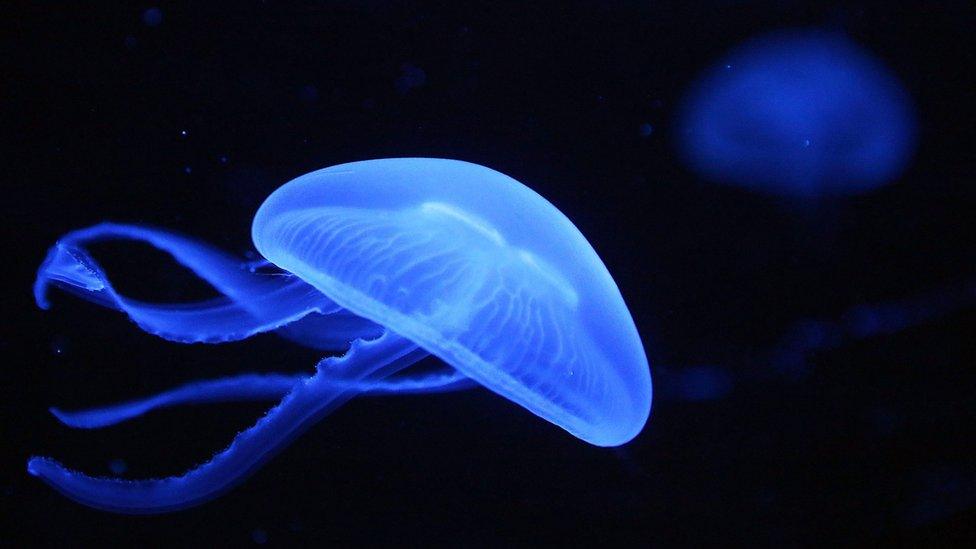
Jellyfish - beach goers' nightmare, coastal China's favourite appetizer
Police in eastern China have raided two fake jellyfish workshops, saying more than 10 tonnes is thought to have made its way into local food markets.
Police said the fake jellyfish had been made by mixing chemicals, adding that checks showed high levels of aluminium.
The syndicates made more than 170,000 yuan (£18,100; $26,100) in profits in a year of production, they added.
Jellyfish is very popular sliced and served as salad, particularly along China's southern and eastern coasts.
Huzhou municipal police in Zhejiang province, which is leading the investigation said they first found a workshop run by a Mr Yuan, who made and sold the fake jellyfish at a farmer's market.
Mr Yuan then led detectives to a bigger workshop in Changzhou city in neighbouring Jiangsu province run by a Mr Jia who had taught him the "art" of faking jellyfish. He was detained alongside other syndicate members. The arrests were made in late April, but police only made it public late last week
Is fake jellyfish harmful?
Mr Yuan told the investigators he made the jellyfish by mixing three chemicals - alginic acid, ammonium alum and calcium chloride anhydrous - according to an official release (in Chinese), external by Huzhou police on social media platform WeChat.
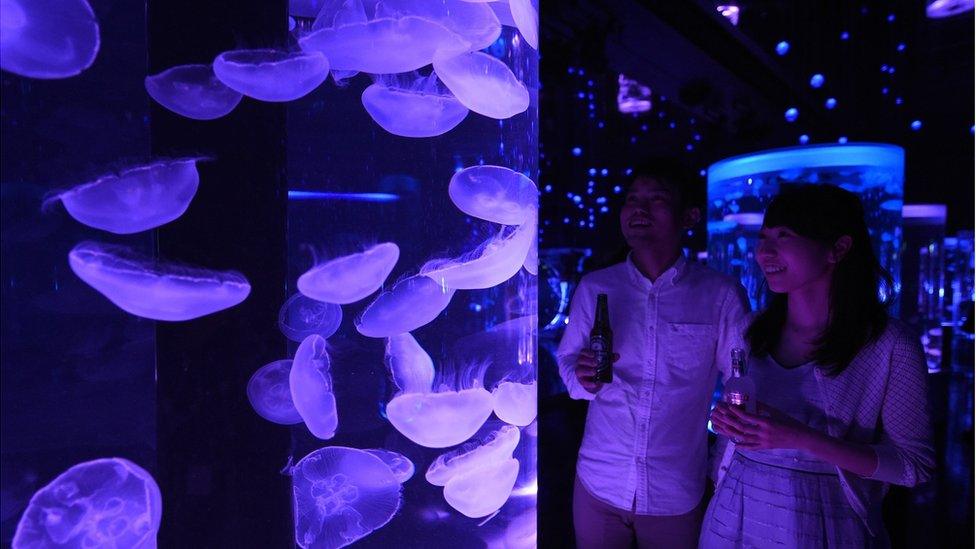
Jellyfish - both beautiful and tasty
Officers say they found "excessive levels" of aluminium in the fake jellyfish - up to 800mg/kg, which is eight times of China's own legal limit, external.
The food and drug safety branch of Huzhou police said too much aluminium could result in bone and nerve damage, and potentially harm memory. They warned against pregnant women, children and the elderly consuming the substance.
Why make fake jellyfish?
Although jellyfish can be poisonous they are considered something of a delicacy in China, described as both tasty and a good source of collagen.
Especially popular in the summer, jellyfish skin is sliced and served like a salad with various dressings.
It appears as if the wild jellyfish supply simply cannot cope with the demand. Zhejiang's Metropolitan Express paper has reported on jellyfish farms in the province. It quotes fish farmers saying that half-a-kilo of jellyfish takes 40 days to raise, with the wholesale price at about 30-40 yuan.
This cost is halved with artificial jellyfish and for obvious reasons, the production time is far less.
How do you tell real from fake jellyfish?
The Huzhou police have issued guidance on how to spot the difference.
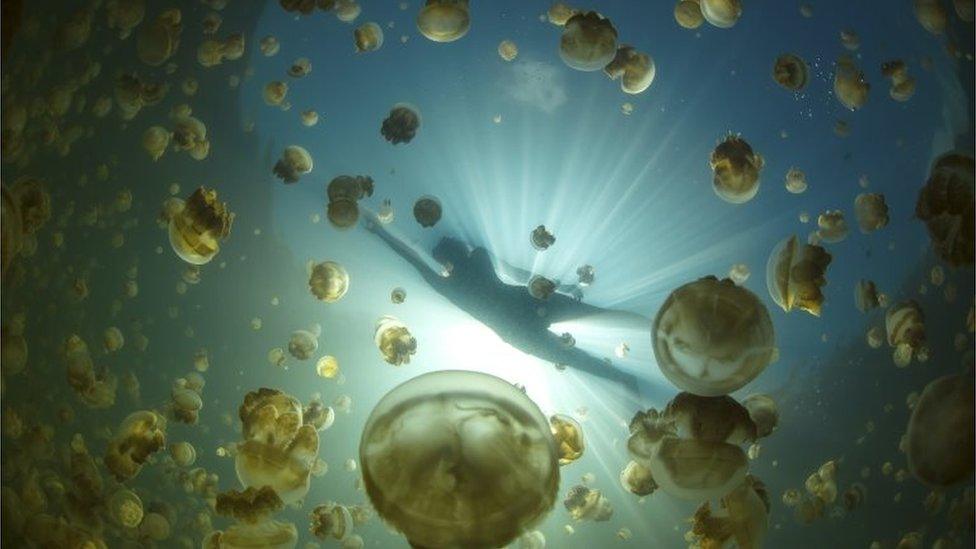
Real jellyfish is yellowish and has a fishy smell
Artificial jellyfish is tasteless with no smell and is tough to tear and has a texture similar to sellotape.
The real deal? Quite the opposite. It has a fishy smell, and is yellowish and colourful.
This is not the first fake jellyfish bust
In November 2014, Huzhou police, again, caught three individuals selling fake jellyfish made from a similar chemical mixture.
In October 2013, police in central Hunan province broke another jellyfish syndicate.
That group is said to have made 40 tonnes of fake jellyfish, and the ringleader was sentenced to six months in jail, external.
- Published25 November 2015
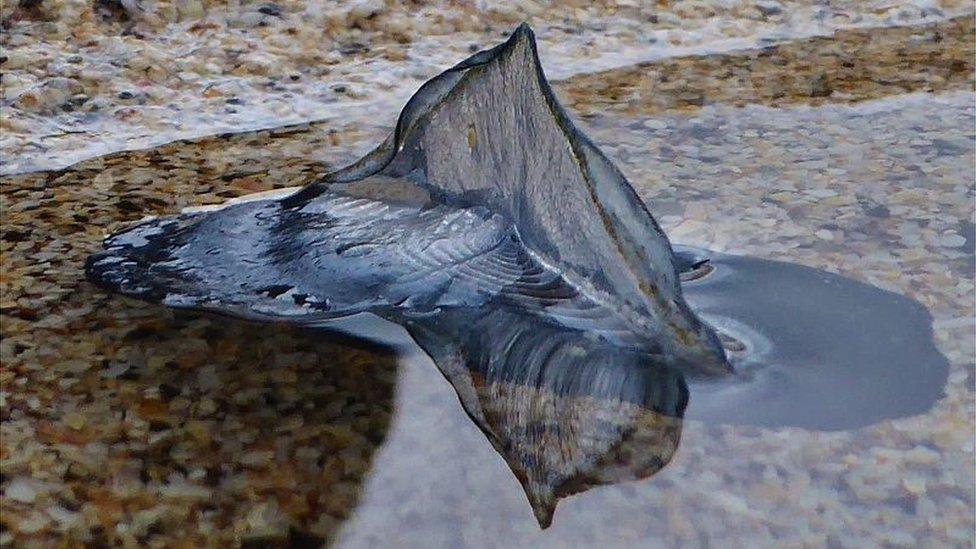
- Published30 September 2015
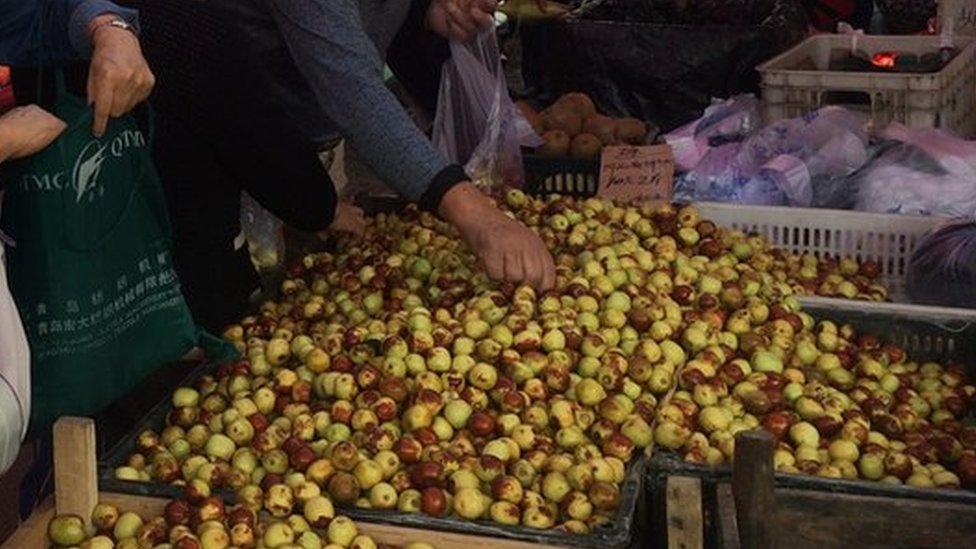
- Published24 June 2015
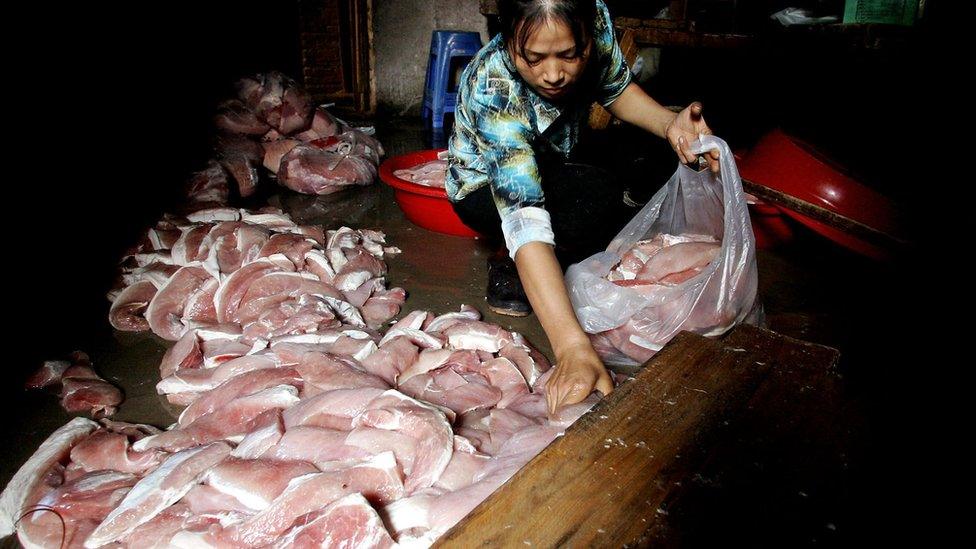
- Published29 June 2014
